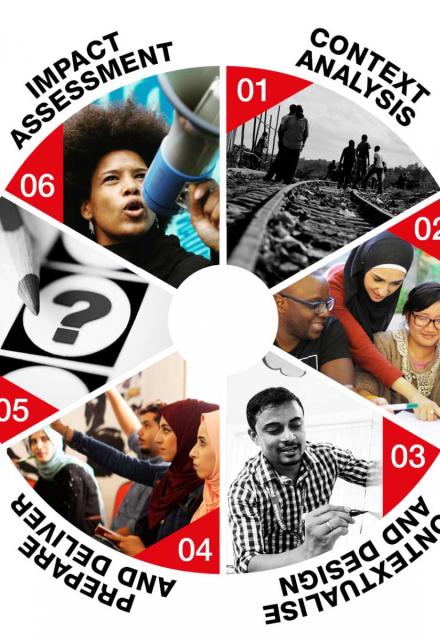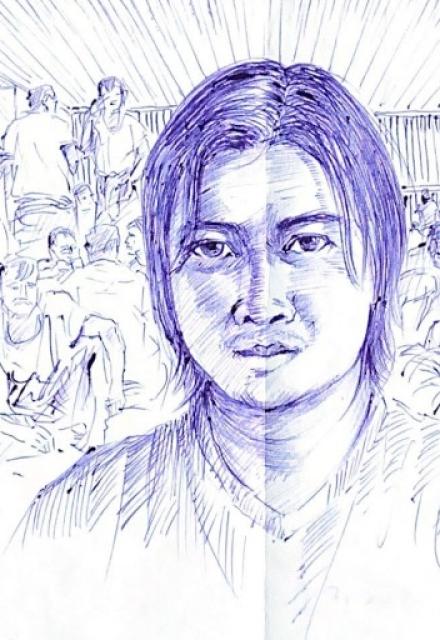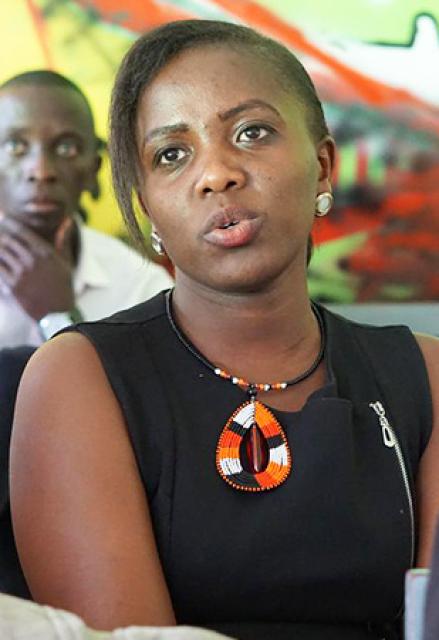Electoral violence in Ghana may be less severe than in other countries in Sub-Saharan Africa, yet since 1992 every election has experienced some level of violence.
The Northern Region of Ghana has been the stage of violence often connected to competition for chieftaincy rights with tribal factions in conflict. In 2002 this resulted in the killing of the Andani paramount chief which triggered a two-and-a-half-year curfew on Tamale and Yendi.
Just before the 2016 elections in Ghana, 16 young people from Ghana and the Gambia participated in a Campaign Training at Global Platform Ghana. The training focused on the role of youth in promoting peaceful elections and on giving the young people campaign skills to mobilise and organising for peaceful elections with the slogan “Make peace win”.
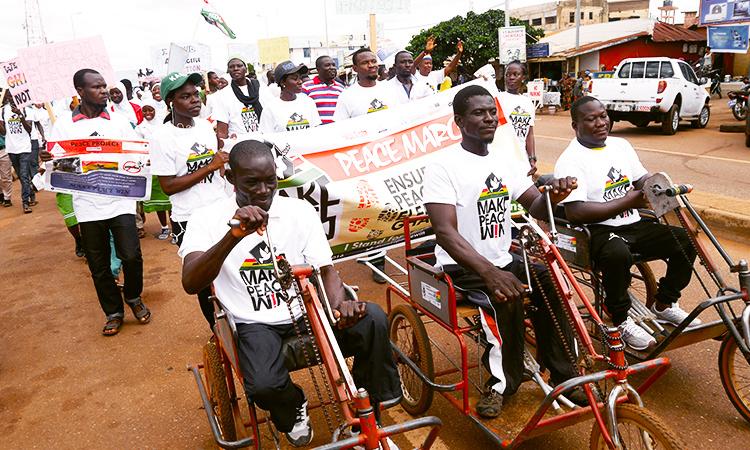
The participants conducted a survey about the motivating factors of youth-led violence that among others concluded that the main factors are poverty, youth unemployment, weak security, poor self-discipline and manipulation or coercion by politicians.
The participants used the knowledge they gained on the election process and voter’s rights to train first time voters in the voting process and voters’ rights; held a series of Radio discussions on youth-led violence and on the importance of young people to take an active role in becoming peace ambassadors and ensuring peaceful elections. Finally, they carried out a flash mob on the International Day of Peace to raise awareness on becoming peace ambassadors.
The participants managed to engage key political party leaders, religious and traditional leaders, youth groups and collected 200 signatures showing commitment to speak and act positively to promote peace, refrain from engaging in or inciting any violent behaviour, respect other people’s views and accept and respect the election results gracefully.
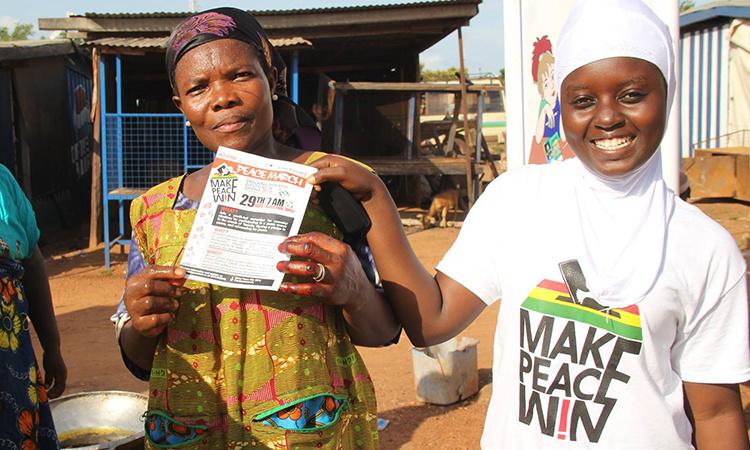
They organised an engagement meeting and facilitated a dialogue between youth groups (political and non-political) and the Electoral Commission, Ghana Police Service, the Media, chiefs, the Judiciary Service and the National Commission for Civic Education (NCCE). The meeting created a space for young people to make their voice heard on the election process and resulted in a commitment to ensure a violence free election.
The campaign mobilised around 300 people in a peace march and concert in Tamale where the signatures for peace were handed over to representatives of the National Commission for Civic Education and Peace Declaration and an advocacy speech was given by the spokesperson of the campaigners.
After the Campaign Training, participants continued advocating for peaceful elections through several door-to-door campaigns to educate young people on the role and importance of being peace ambassadors; used street theatre to raise awareness on electoral violence in their communities; designed and distributed leaflets that explained how to how to recognise early warnings of electoral violence and how to manage conflicts.

Some of the participants registered as elections observers and were trained by the electoral commission to observe and monitor the election process in various districts in the Northern Region.
WEST AFRICAN SOLIDARITY
Two participants from The Gambia who also participated in the Campaign Training in Ghana used their knowledge on democratic elections and campaign skills to educate communities and families in The Gambia about the constitution and their rights.
In 2017, they both played active roles in the youth-led campaign titled #GambiaHasDecided that was part of mobilising Gambians to take a stand and advocate for acceptance of election results and peaceful transfer of power to the newly elected president.
The campaign was among the factors that influenced the decision of the former president of Gambia to step down which marked the end of his 22-year rule. The online campaign received international support from various countries, including solidarity messages from the Ghanaian participants to the young people in The Gambia.

